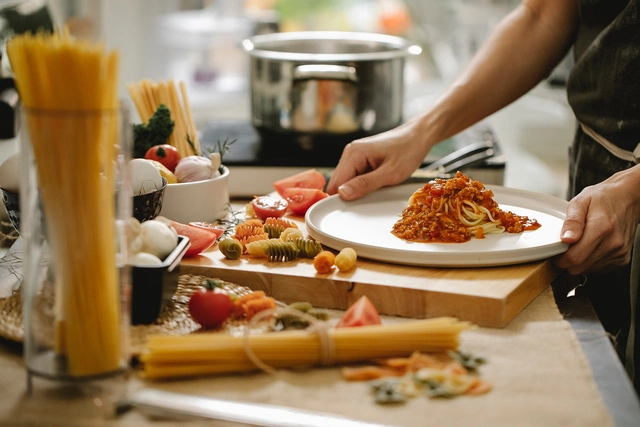Best Cooking Tips for Beginners
Essential Tips to Kickstart Your Culinary Journey with Confidence

1. Start with Simple Recipes
Begin your cooking journey with simple recipes that require minimal ingredients and basic techniques. Simple recipes help build your confidence and understanding of fundamental cooking methods. As you become more comfortable, you can gradually tackle more complex dishes. Focus on recipes that offer clear instructions and achievable results to ensure a positive cooking experience.
2. Invest in Quality Kitchen Tools
Having the right kitchen tools can make a significant difference in your cooking experience. Invest in essential tools such as a good chef’s knife, cutting board, and measuring cups. Quality kitchen tools ensure better precision and safety, making the cooking process more efficient and enjoyable. Proper tools also contribute to better cooking outcomes and ease of preparation.
3. Learn Basic Knife Skills
Mastering basic knife skills is crucial for efficient and safe food preparation. Learn how to properly hold a knife, make different types of cuts, and handle various ingredients. Good knife skills improve your cooking speed and consistency, and help you handle ingredients with precision. Proper techniques also reduce the risk of accidents and ensure uniform cooking results.
4. Understand Cooking Techniques
Familiarize yourself with basic cooking techniques such as sautéing, roasting, and boiling. Understanding these techniques allows you to apply the right method for different recipes and ingredients. Each technique has its own set of principles and outcomes, and mastering them helps you achieve better results in your cooking. Start with one technique and gradually expand your knowledge.
5. Measure Ingredients Accurately
Accurate measurement of ingredients is essential for successful cooking and baking. Use measuring cups and spoons for dry and liquid ingredients to ensure you follow recipes correctly. Precise measurements help achieve the right balance of flavors and textures in your dishes. Consistent measurement also prevents common cooking mistakes and ensures reliable results.
6. Use Fresh Ingredients
Fresh ingredients contribute to better flavor and texture in your dishes. Whenever possible, use fresh vegetables, herbs, and meats to enhance the quality of your cooking. Fresh ingredients not only improve taste but also retain more nutrients compared to processed or preserved items. Building a habit of using fresh ingredients can elevate your cooking and create more satisfying meals.
7. Season Your Food Properly
Seasoning is key to bringing out the flavors in your dishes. Learn how to use salt, pepper, and other herbs and spices to enhance taste. Proper seasoning involves understanding when to add spices and how to balance flavors. Experiment with different seasonings to discover what works best for each recipe and personal preference. Seasoning correctly can make a noticeable difference in the overall flavor of your meals.
8. Taste as You Cook
Regularly tasting your food while cooking allows you to adjust flavors and ensure the dish is seasoned correctly. Tasting helps identify any imbalances in flavor and provides an opportunity to make adjustments before serving. Developing this habit will improve your ability to create well-seasoned and flavorful dishes. Always use clean utensils for tasting to maintain hygiene and avoid cross-contamination.
9. Practice Food Safety
Food safety is crucial to prevent foodborne illnesses. Follow proper hygiene practices such as washing your hands, using separate cutting boards for raw meats and vegetables, and cooking foods to the correct temperature. Understanding and applying food safety guidelines ensures that your cooking is not only delicious but also safe for consumption.
10. Have Fun and Experiment
Cooking should be an enjoyable and creative process. Don’t be afraid to experiment with new ingredients and techniques. Trying out different recipes and flavors helps build your skills and discover what you enjoy cooking. Embrace mistakes as learning opportunities and enjoy the process of creating delicious meals.
keywords: Cooking Tips; Beginner Cooking; Culinary Skills.